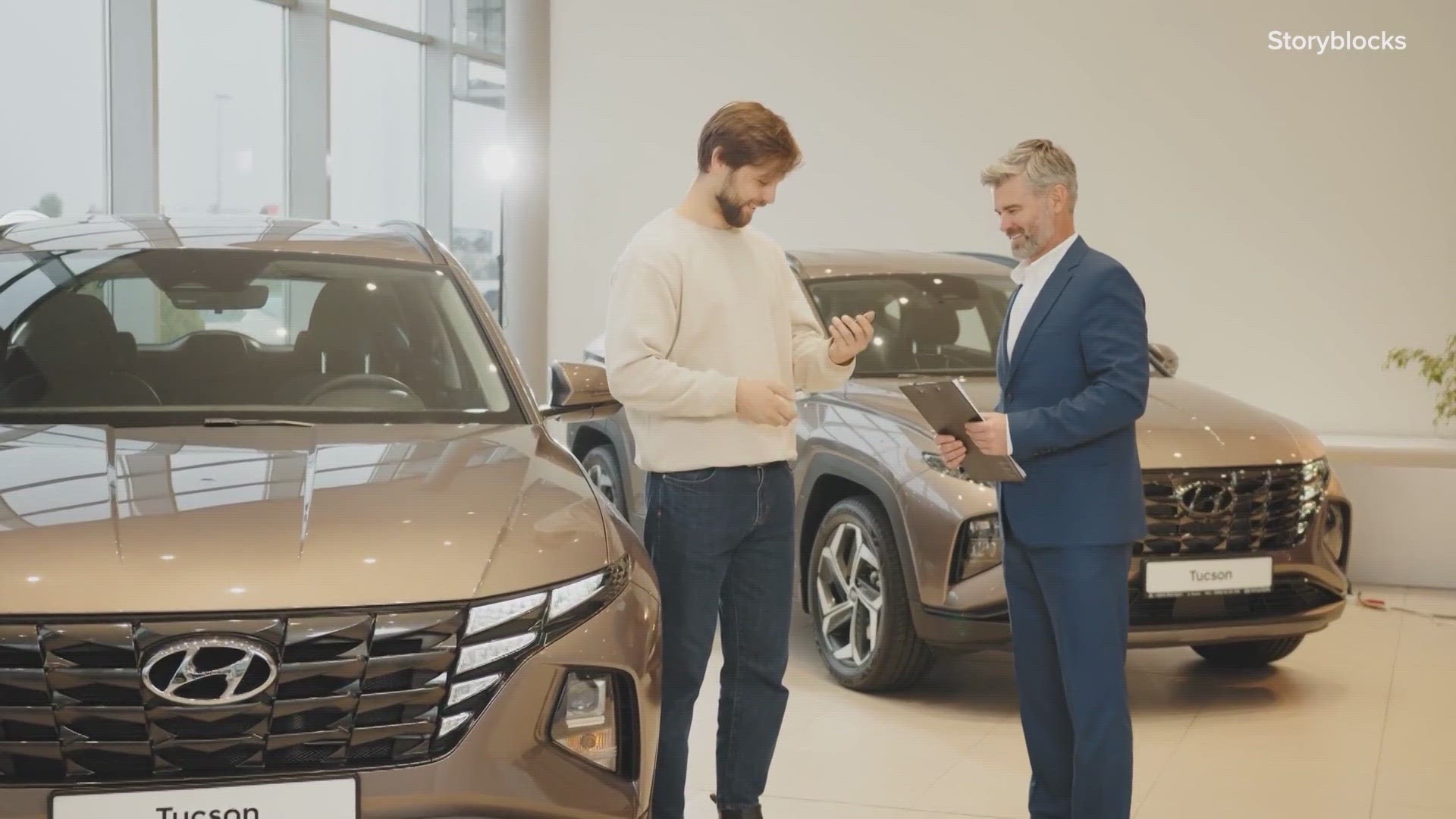SAN ANTONIO — Jose Botello signed a contract for a 2021 Ford Bronco last year though an online dealer. The vehicle was priced around $28,000 and Botello said he was able to make the agreed-upon car payments. But when Botello later looked over the full paperwork, he realized the contract also included more than $13,000 in financing charges and would end up costing him more than $42,000 in total.
Better Business Bureau Director of Media Relations Jason Meza told KENS 5 customers get surprised by extra charges more often than you would think.
"The main things we see are warranty issues and transparency issues. When it comes down to financing the final price doesn't always boil up. Making sure that they are fully transparent is the key in everything," Meza said.
Of course, sometimes the only way to make sure a dealer is transparent is to ask questions of your own. Here are three questions you must ask when buying a vehicle:
1. Where is my truth in lending statement?
So you agreed to buy a car for $30,000. Unless you are paying the whole cost upfront, there will likely be financing charges. The Truth in Lending Statement (or Truth in Lending Disclosure) lays out your interest rate, the financing charge for financing the car, and amount financed and the total amount you will end up paying when the car is payed off.
As Meza put it, "Truth In Lending has the full financial impact of the car purchase."
The final amount you will pay with financing can be substantially more than the cost of the vehicle, depending on your credit. Once you see that final dollar amount you will be spending over four to six years, you might re-think buying the vehicle.
Never sign a contract for a vehicle unless the dealer is willing to show you the Truth in Lending Statement first.
2. Is there a maintenance package included in my contract?
Meza said dealers often try to make extra money by offering extra maintenance or warranty add-ons as part of the final contract. Ask the dealer if there are maintenance or warranty costs in that contract. Don't allow the dealer to just give you the cost per month. Instead, make sure you how much those add-ons increased the total amount of the contract.
If you don't like the extra maintenance programs or warranties, tell the dealer to take them out of the contract.
3. How much am I paying in fees?
Different dealers will charge you different additional fees as part of the transaction. Meza said they can include "stocking and shipping fees". Ask the dealer if there are additional fees and in the contract and don't be afraid to ask the dealer to justify them. Meza said a good dealer won't be afraid to explain any extra fees.
"A great dealer will explain, outright, in person, exactly what those fees are to the person in their own language... verbally," Meza said.
If the dealer can't explain the fees, or if you feel they are simply to much added on, don't be afraid to walk away right before signing a contract.
In addition to those questions, Meza said there are also some bad actors out there that will cut corners when trying to sell you a vehicle. Here are additional tips to protect yourself.
Don't leave the lot without the full contract
Meza said some dealers will be in such a rush to sell you a car that they might say "come back on Monday to get the signed papers." Don't do that. You need to have the complete contract for the car before you drive off the lot with it. You do not want to drive away with just a purchase receipt and then later have confusion about who owns the car or how much you owe.
Check the VIN number
Make sure the vehicle's VIN number on the windshield matches the number on the paperwork. Meza said he's seen bad actors use bait-and-switch tactics to get rid of a different vehicle. Don't let that happen to you.
Make sure you understand your warranty
Know what the dealers warranty covers, especially if you are buying a used vehicle. You don't want to have a problem with the vehicle 32 days later and then find out the warranty was only good for 30 days. A 60 day warranty should the available at the minimum.
Get a CARFAX report for the vehicle before buying it.
This report will let you know how many times the vehicle has been sold and, more importantly, how many times it has been repaired. A good dealership should provide the report to you. If they don't, or if you aren't sure about the report they provided, purchase one yourself at CARFAX.COM.

